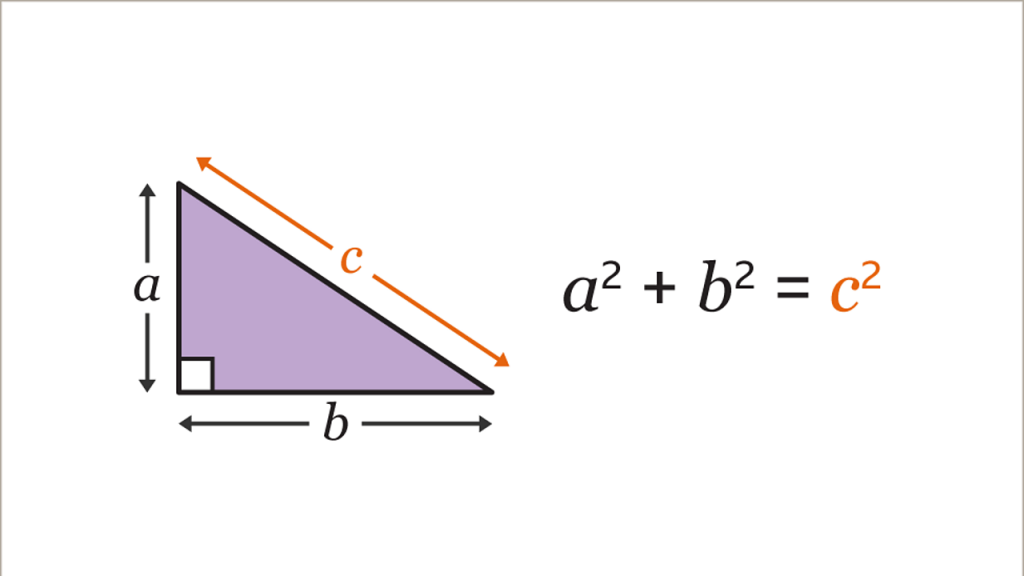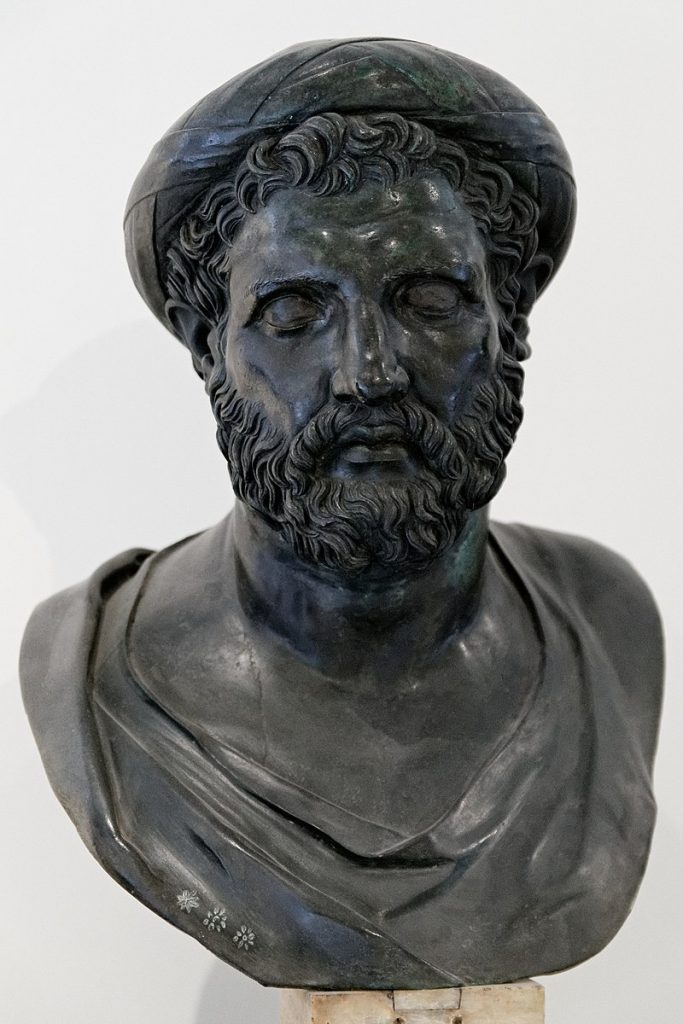Who was Pythagoras?

Pythagoras was a Greek philosopher, mathematician, and scientist who lived in the 6th century BCE. He is best known for his contributions to mathematics, including the famous Pythagorean theorem.

However, Pythagoras was also interested in many other areas of knowledge, including philosophy, astronomy, and music. In this blog post, we will explore the question of whether Pythagoras was primarily a musician or a mathematician, and his theory of “Music of Spheres”.
Pythagoras – a mathematician
Pythagoras’ work in mathematics is well-documented, and his contributions to the field are still studied today. He is credited with a number of important discoveries, including the aforementioned Pythagorean theorem, which has countless applications in mathematics and physics.
Pythagoras’ interest in mathematics was not just theoretical, however; he believed that mathematics was a way of understanding the fundamental principles of the universe. He and his followers studied the properties of numbers and their relationships, laying the groundwork for modern number theory.
According to a legend, he discovered the Pythagorean theorem while contemplating the relationship between the lengths of the strings on a lyre.
Pythagoras – a numerologist
In addition to his theorem, Pythagoras also developed a system of numerology that is based on the idea that each number has a unique vibration and significance. He believed that numbers could be used to gain insight into the nature of the universe and that they could help people understand themselves and their place in the world.
Pythagoras believed that the numbers 1 through 9 had specific meanings and qualities. For example, the number 1 represented unity and the origin of all things, while the number 2 represented duality and the concept of opposites. He also believed that the number 3 represented harmony and balance, while the number 4 represented stability and order.
Pythagoras – a musician
While Pythagoras is primarily known for his work in mathematics, he also had a deep interest in music. In fact, some scholars argue that Pythagoras was primarily a musician and that his work in mathematics was motivated by his desire to understand the underlying principles of music.
According to this view, Pythagoras believed that music was more than just entertainment or expression; it was a fundamental aspect of the universe that could be understood through mathematical principles.
He saw music as a powerful force that could inspire and elevate the human spirit, and he believed that the study of music was essential for anyone seeking to understand the nature of reality.
Pythagoras believed that music was based on ratios and harmonies that could be expressed in numerical terms. He saw the relationship between musical notes as analogous to the relationships between numbers, with each note representing a different mathematical ratio. Pythagoras is credited with discovering the mathematical basis of musical intervals, such as the octave, fifth, and fourth, which became known as the Pythagorean tuning system.
Pythagoras believed that music had the power to influence human emotions and behavior, and he saw it as a means of purifying the soul and achieving spiritual enlightenment. He believed that certain musical modes and rhythms could have a calming or energizing effect on the listener, and he developed a system of musical therapy that was used to treat a variety of illnesses.
Pythagoras’ belief in the power of music was not limited to its effects on humans. He also believed that music played an important role in the natural world, with celestial bodies producing a kind of celestial music that was too perfect for human ears to hear. He saw the study of music as a way to understand the underlying principles of the universe and to align oneself with the divine order that governed all of creation.
Overall, Pythagoras believed that music was a deeply spiritual and mathematical art form that had the power to transform both individuals and the world around them. His ideas about music have had a lasting impact on Western culture, inspiring generations of musicians, composers, and thinkers to explore the connections between music, mathematics, and spirituality.
What is Pythagoras’s theory of “Music of Spheres”?
“The musica universalis (literally universal music), also called music of the spheres or harmony of the spheres, is a philosophical concept that regards proportions in the movements of celestial bodies – the Sun, Moon, and planets – as a form of music. The theory, originating in ancient Greece, was a tenet of Pythagoreanism, and was later developed by 16th-century astronomer Johannes Kepler. Kepler did not believe this “music” to be audible, but felt that it could nevertheless be heard by the soul.”
Wikipedia
Pythagoras’ theory of the “Music of the Spheres” is the idea that the universe is a harmonious entity and that celestial bodies, such as the planets and stars, produce a sound that is too perfect for human ears to hear. The concept of the “Music of the Spheres” is based on Pythagoras’ belief that the universe is fundamentally mathematical and that the relationships between numbers and musical harmony are deeply interconnected.
According to Pythagoras’ theory, the planets and stars move in perfectly circular orbits around the Earth, creating a kind of celestial music that is based on the same mathematical principles as terrestrial music. Each celestial body is believed to produce a unique pitch based on its size, speed, and distance from the Earth, and the combined effect of all the celestial bodies produces a complex and beautiful harmony.
Pythagoras believed that the “Music of the Spheres” was evidence of the fundamental harmony of the universe and that it reflected the divine order that governed all of creation. He saw the study of music and mathematics as a way to understand this harmony and to bring oneself into closer alignment with the divine. Pythagoras’ ideas about the “Music of the Spheres” have had a profound impact on philosophy and science, inspiring generations of thinkers to explore the connections between music, mathematics, and the cosmos.
While the concept of the “Music of the Spheres” may seem fanciful or even mystical to modern ears, it is important to remember that Pythagoras was a deeply rational thinker who saw the world as fundamentally ordered and mathematical. His belief in the “Music of the Spheres” was not a rejection of scientific inquiry but rather a way of understanding the underlying principles that govern the universe. Even today, scientists continue to explore the connections between music and mathematics, and the concept of the “Music of the Spheres” remains an enduring source of inspiration for artists and thinkers alike.
Was Pythagoras a musician or a mathematician?

So, was Pythagoras primarily a musician or a mathematician? The answer to this question is not clear-cut, as Pythagoras was interested in both fields and saw them as deeply interconnected. However, it is clear that Pythagoras’ work in mathematics and music theory has had a profound impact on Western culture and continues to be studied and celebrated today.
One of the ways in which Pythagoras’ work in music theory has influenced Western culture is through its impact on the development of Western classical music. The idea of the harmonic series, which Pythagoras discovered, forms the basis of the Western musical system, with notes and intervals defined in relation to each other based on their position in the harmonic series. This system has had a profound impact on the development of Western music, from the works of Bach and Mozart to the avant-garde compositions of the 20th century.
Pythagoras’ work in mathematics has also had a lasting impact on Western culture, with the Pythagorean theorem being one of the most famous and widely-used mathematical concepts in history. The theorem has countless applications in fields such as engineering, physics, and geometry, and has inspired generations of mathematicians.




